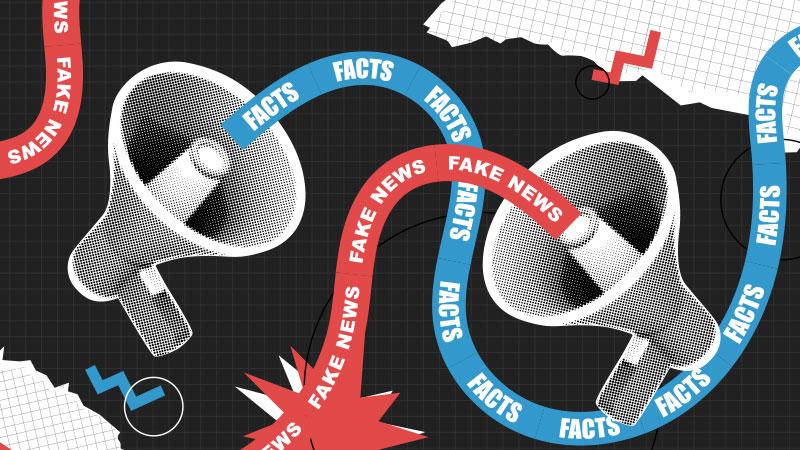New research led by Professor Tom Buchanan, Professor in Psychology at the University of Westminster, suggests that among the factors leading people to share false political information on social media are unusual thinking patterns and a desire to increase awareness.

The spread of false political information on social media can tarnish trust in authentic news and even contribute to social unrest. Knowingly or not, a small portion of social media users actively share false material.
In the report titled Individual Differences in Sharing False Political Information on Social Media: Deliberate and Accidental Sharing, Motivations and Positive Schizotypy, Professor Buchanan and colleagues asked what differentiates those who share false material on social media from those who do not and why they do it. The research revealed that people with higher scores on a measure of Positive Schizotypy are more likely to spread disinformation.
Professor Buchanan explains: “Positive Schizotypy is the name given to a tendency to experience unusual thoughts of various kinds. This does not mean you have mental health problems - everyone has these kind of experiences. It’s just that some people have them more often than others. Sharing false information on social media, both accidentally and on purpose, seems to be related to this tendency.”
To reach their conclusion, they tested two categories of factors: individual user differences, such as personality, as well as user motivation.
The researchers conducted four individual studies on a total of 1,916 US residents. Participants did not overlap between studies.

Professor Tom Buchanan
Study one used a cross-sectional online survey to explore the relationship between individual differences, such as Positive Schizotypy, conscientiousness and decision-making style, and users’ self-reported tendency to share false information.
Study two expanded on the first by surveying respondents’ motivations for sharing false information. Reasons included activism, manipulation and entertainment.
In the third study, participants, whose individual differences and motivations were surveyed, viewed a series of true and false political headlines, and were asked to indicate whether they would consider sharing each and whether each was truthful.
Finally, in the fourth study researchers assessed real posts uploaded by participants to determine if the factors identified in the previous studies were associated with actual sharing of false material on X (formerly Twitter).
Across all studies, the researchers found evidence that Positive Schizotypy is related to sharing false information, both accidentally and deliberately, though they note that the effect sizes are small. This might be because Positive Schizotypy is associated with decision-making based more on intuition - and sometimes biases - rather than reflective or deliberate thought. As for motivations, participants most commonly reported sharing political information for reasons of raising awareness.
The researchers noted limitations of their study, including small sample sizes in some cases limited the exploratory analysis that could be performed, and participants may not always have known whether or not the information they shared was false.
According to the researchers, a better understanding of who shares false information and why may help in identifying and developing targeted strategies to combat the spread of misinformation. They also suggest further research is needed to understand the links between Positive Schizotypy and spread of misinformation.
Professor Buchanan said: “We’ve all seen false political information on social media, but only a few of us choose to share it. This study showed that our specific motivations for sharing, as well as our individual psychological characteristics, are associated with sharing false material both accidentally and on purpose.”
To find out more read the full report on PLOS ONE.

